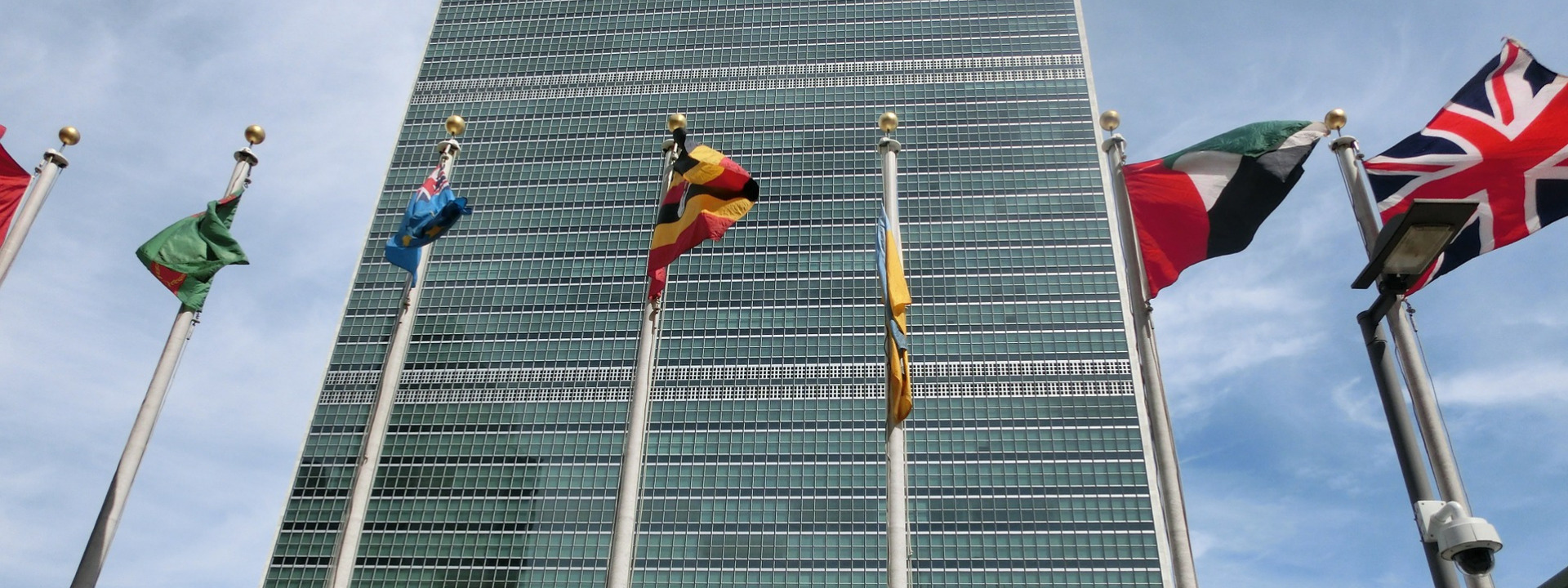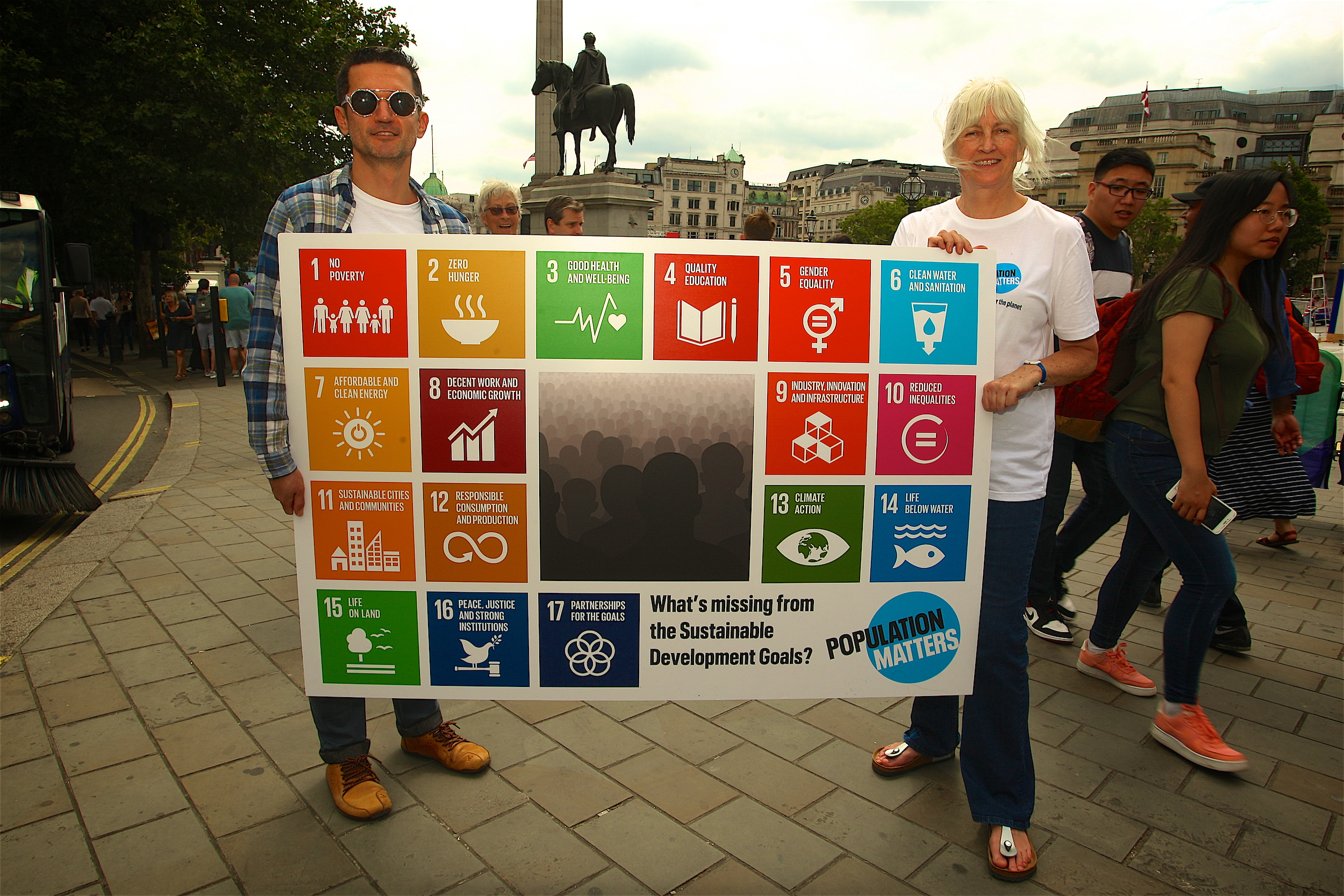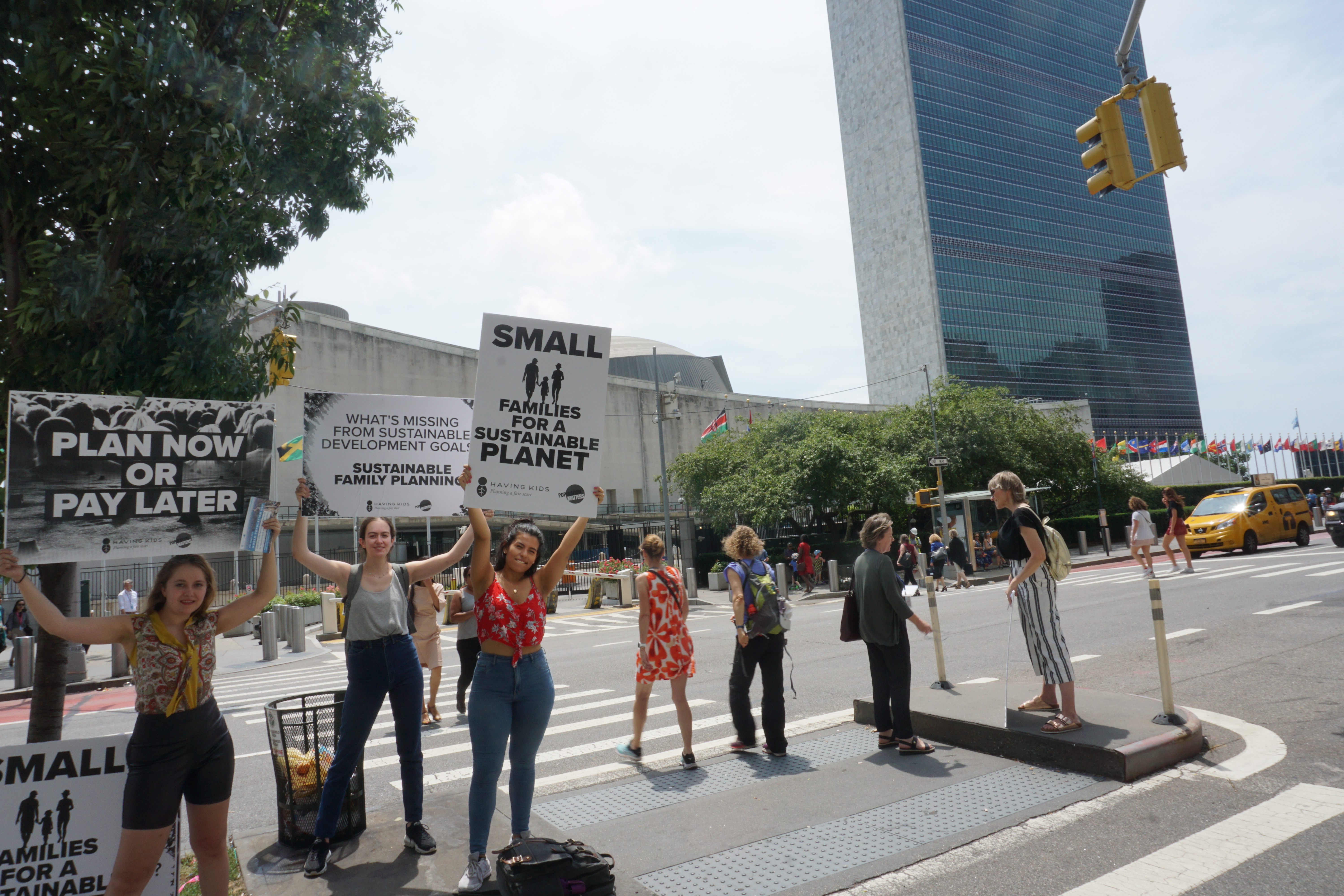
PM supporters call for UN action
On 11 July 2019, World Population Day, we launched a petition calling on the UN to recognise the urgency of achieving a sustainable human population if the world is to have a reasonable chance of meeting the Sustainable Development Goals. Almost 8,000 people across 128 countries have signed up.
To coincide with the UN’s 5th anniversary of the signing of the Sustainable Development Goals and this week’s UN’s Global Week To #Act4SDGs we have today sent the petition to the UN Secretary-General and its Officer-in-Charge of the Sustainable Development Goals.
The petition says:
We, the undersigned, call on you to recognise the urgency of achieving a sustainable human population if the world is to have a reasonable chance of meeting the Sustainable Development Goals. Positive, empowering measures to allow and encourage people to choose smaller families must be at the heart of the UN’s programme. Specifically, we call on you to:
1. Issue a statement expressing support for smaller families, and recognising the value of ending and reversing population growth.
2. Embed positive measures to address population in the implementation and work of existing UN frameworks and bodies, such as the SDGs, IPCC and Convention on Biodiversity.
3. Explore options for the development of an international multilateral framework to address population and demographic challenges, equitably, compassionately and effectively.


The next stage of the campaign
World Population Day 2019 marked the start of our United Nations campaign, with actions on three continents. This year, we extended the campaign online and its centrepiece was our new report, Hitting the Targets, which analyses the impact of population growth on the progress of all 17 Goals.
Alongside the petition we have also sent a letter to the UN Secretary-General Antόnio Guterres from Population Matters Director Robin Maynard along with a copy of that report. It reveals not just how population growth is impeding progress towards the SDGs, but how in several cases, progress has been or will soon be cancelled out entirely by population growth, leading to greater numbers of people suffering and continued environmental degradation. Some of the targets affected include: poverty reduction, hunger, girls’ education, and the number of girls facing genital mutilation.
Since the launch of the petition in 2019, the global pandemic has had unprecedented impacts on both humanity and nature. The UN forecasts that it is unlikely any of the goals will be met and the pandemic will potentially push an additional 71 million people into extreme poverty in 2020.
We have the solutions
The findings of our report demonstrate that continued failure to address population growth will prevent progress being achieved, but it also shows that the solutions to this are already embedded in many of the Goals – ending poverty (SDG1), modern family planning (SDG 3, good health), quality education (SDG 4) and gender equality (SDG 5). One year on we have revised and strengthened our initial call to action, and to accelerate progress, we ask policymakers to:
■ defend and invest in the ethical population solutions already embedded within Goals 1, 3, 4 and 5
■ promote and publicise the value and importance of smaller family size, in wealthy and poor countries alike, in meeting the SDGs
■ ensure the value of ethical and empowering population action is recognised across all bodies and mechanisms intended to achieve the SDGs, including in multilateral environmental agreements.
Thank you to all those who took the time to sign this petition and without your continued support Population Matters could not do the work we do. Click here to find out more about other ways you can take action.
